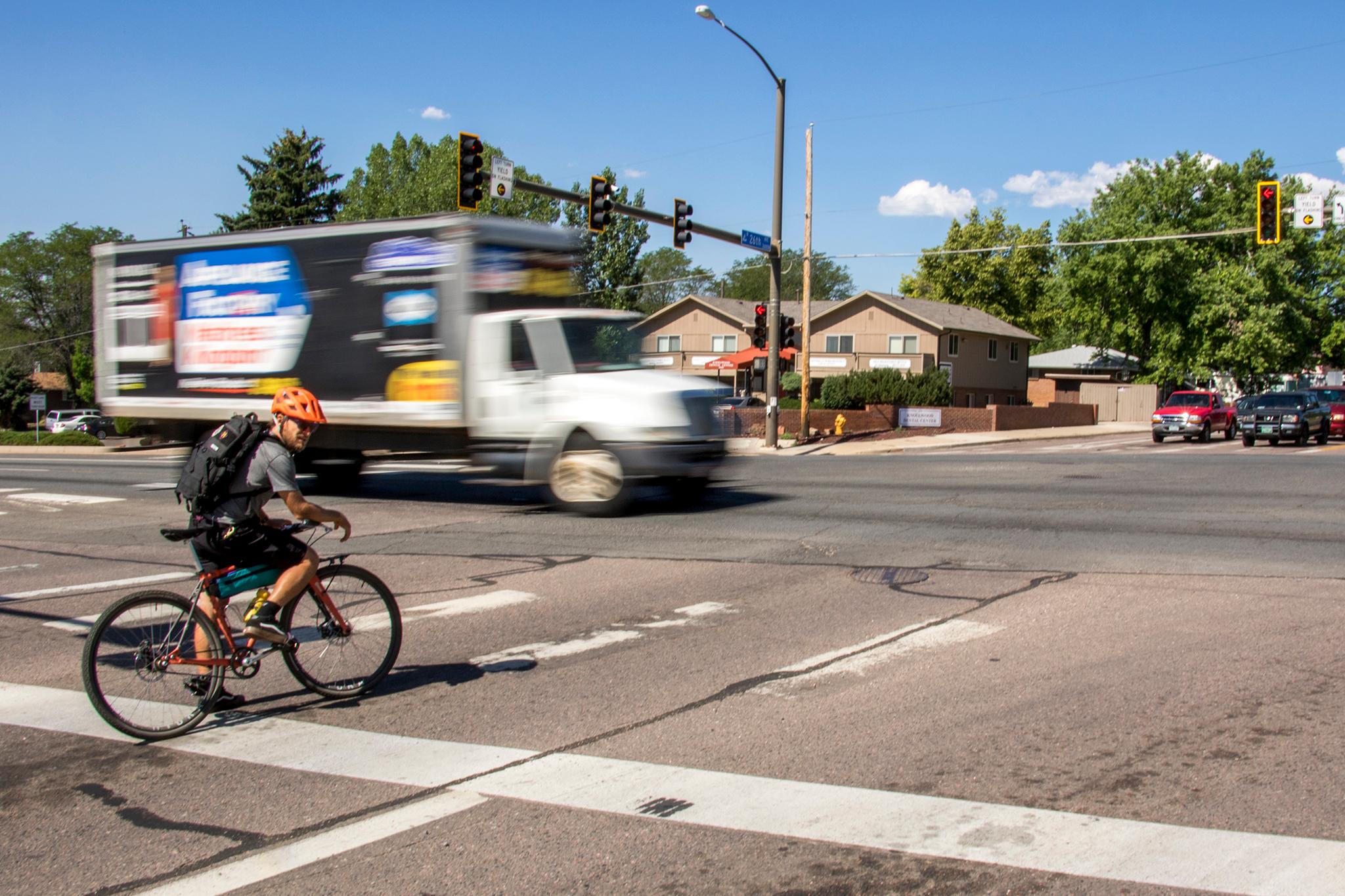A Denverite reader recently had cause — being nearly hit by a driver while using a hand cycle and getting an email from someone else who'd been hit by a driver while in a wheelchair and reading this story — to think about the laws governing the relationships between cars and bikes. They asked us if there are any laws that explicitly state that it is a crime to hit people with cars.
Yes, there are. Several of them.
Brad Tucker, an attorney who represents pedestrians and cyclists who've been hurt, says there are quite a few laws on the books that make it a crime to hit a pedestrian or cyclist. The violations range in severity from careless driving causing injury all the way up to vehicular homicide.
He said it would be absurd if drivers were able to strike vulnerable road users, like cyclist and pedestrians, with no consequence.
But while we spoke, he also wanted to talk about how he'd change the laws if he could.
However, these laws are not perfect in Tucker’s view. He says they often result in punishment for the driver but not justice for both parties involved in the incident.
“In general, the criminal statutes are designed more to punish the conduct than the harm that results from the conduct. As a result of that, when the victim of the harm is a vulnerable road user, the punishment that is meted out through the criminal system often leaves those of us who are vulnerable road users feeling like the punishment doesn't match the crime,” Tucker said.
He explained that the punishment for the perpetrator of the crime does not have the same impact as the consequences that the victim of that crime may suffer.
Tucker shared this case as an example of what he sees as an unfair discrepancy.
A young woman in Boulder used a bicycle as her sole form of transportation. She suffered what Tucker called “horrific injuries” — which kept her off her bike for over a year — at the hands of a motor vehicle driver who was charged and convicted of careless driving causing injury. Because his driving and criminal records were clean, his punishment was to receive a 4-point hit on his license, which is only a third of the way to having your license suspended.
So his license wasn't suspended. He was back on the road that evening, Tucker said.
He feels that this is not fair because her primary form of transportation was stripped away from her for a year through no fault of her own, while the motor vehicle driver was able to get back into his car that afternoon.
“His right to use that motor vehicle was never impaired. That, to me, isn't just, that’s not fair. I don't find that consistent with my sense of justice,” Tucker said.
He believes our laws need to have more severe punitive measures for those who harm vulnerable road users.
“One of the things I would like to see is the law change so that there were more severe ramifications on a motor vehicle’s driver license when there's serious injuries or even death,” he said.
He noted that there are already laws in place for people to receive limited licenses that allow them to go to work and school. He said he is not calling for bad drivers to become destitute and unable to take care of their families. He feels that the perpetrators, just like their victims, should have to find alternative ways to get around for non-essential activities like going to the movies or going fishing.
Do you have more questions about the laws around bikes — or questions about Denver in general?
He has to put together this resource list of Colorado laws regarding cycling.
For other questions, just ask Denverite!














